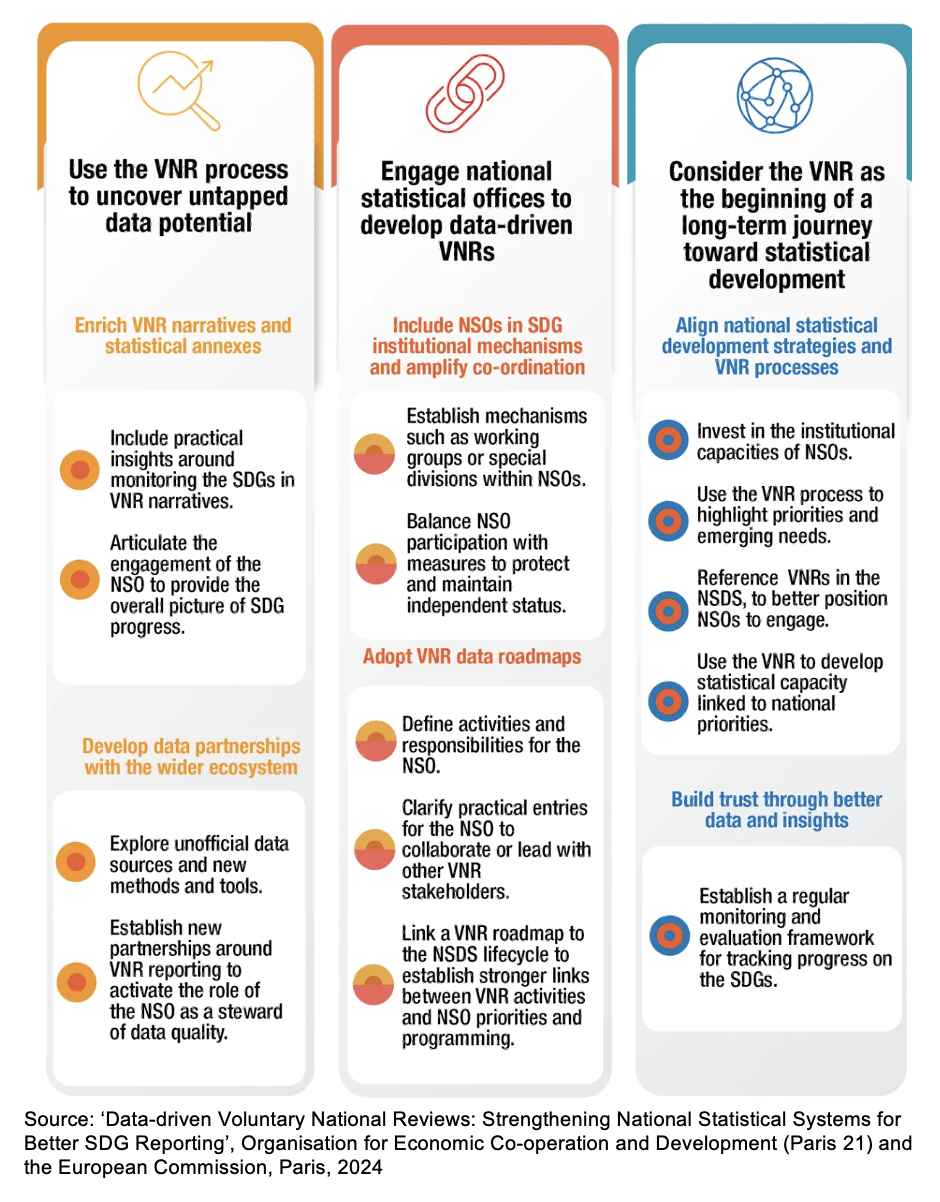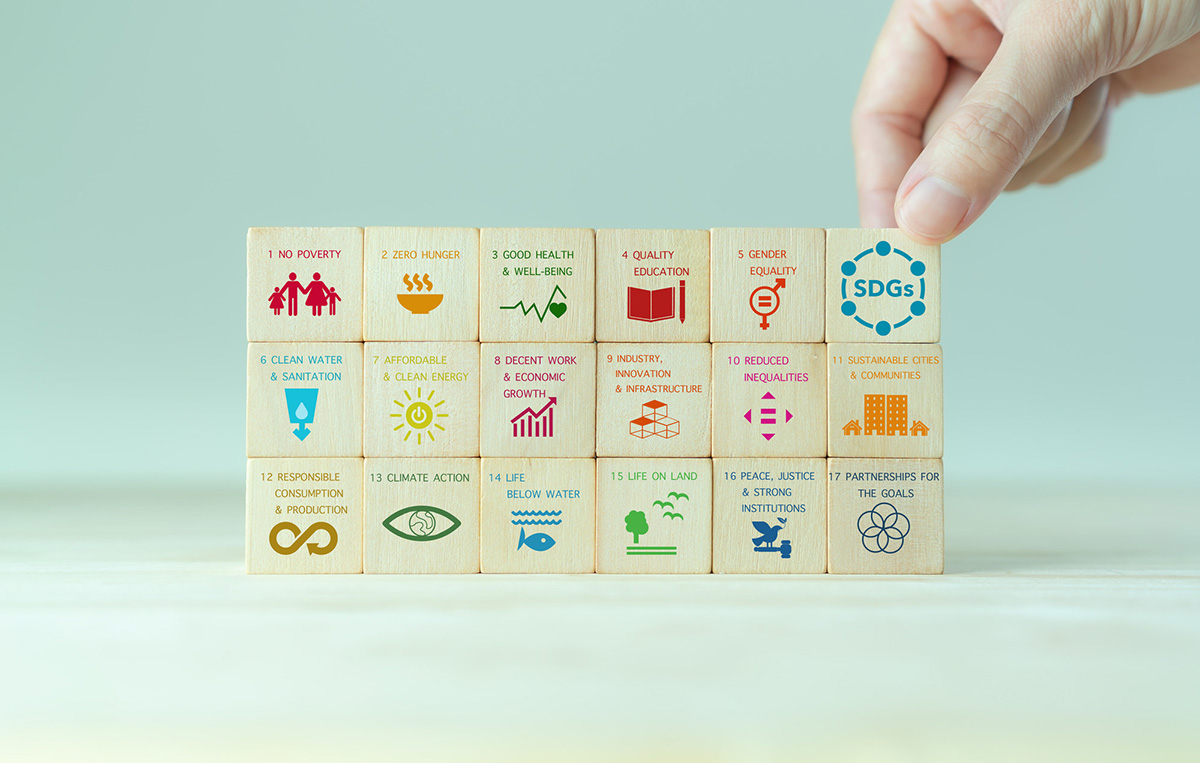By Pytrik Dieuwke Oosterhof, Senior Sustainable Development Consultant and Founder of O-Land Consulting
In the SDG space, data unfortunately remain one of the biggest challenges countries grapple with. Well into the implementation of the 2030 Agenda for Sustainable Development data gaps are still an obstacle in measuring our sustainability efforts. In the face of current democratic challenges, fake news, disinformation, increasing polarization, and the rise of artificial intelligence (AI), the truth can be whatever is convenient for politicians, governments, businesses, organizations, and individuals. Quality data are needed to verify what lies behind political decisions and the production of goods, and to determine whether sustainable action is truly what it claims to be.
A new report by the Organisation for Economic Co-operation and Development’s (OECD) Partnership in Statistics for Development in the 21st Century (Paris21), and the European Commission looks at ways to strengthen evidence-based reporting on the SDGs. It was launched during the July session of the 2024 High-level Political Forum on Sustainable Development (HLPF) in New York. The report discusses how countries have developed their SDG monitoring approaches from a data and statistical perspective. Based on a detailed analysis of 2016-2023 voluntary national reviews (VNRs), it unpacks the main trends, specifically related to data governance and institutional structures, in particular the role of national statistical offices (NSOs).
While VNRs have become an established mechanism to assess SDG progress, long-term and sustainable solutions to improve the evidence base of the SDGs are still needed. Although NSOs in many cases provide and verify SDG data, their role is often under-appreciated and overlooked. NSOs are listed as the main data provider in approximately 40% of the VNR reports. And, a little over 30% of NSOs are members of or support national SDG institutional mechanisms.
Common challenges reported by countries are the lack of NSO capacity and a need for technical and financial support for SDG monitoring. VNR reporting still suffers from a lack of data as well as data collection and disaggregation challenges. These challenges affect not only our ability to make a true SDG progress assessment at national level, but also globally. In addition, they put into question accountability and transparency measures, increasing the risk of overclaiming and ‘SDG-washing.’
As data providers, NSOs are instrumental in giving credibility to sustainability action. The report discusses ways in which they can help gain a comprehensive picture of SDG progress, including by looking beyond their role of carrying out censuses and surveying and disseminating official data. Due to the lack of SDG data, official statistics needs to be supplemented by alterative data sources, for example data supplied by businesses, civil society, or citizen-generated data.
Engaging a wider ‘data ecosystem’ has a number of benefits. It can help increase data coverage, improve data quality, and foster innovation. This can result in better data analysis and interpretation and help strengthen public trust and engagement. However, the coordination and verification of these data sources requires an NSO mandate that goes beyond its traditional role. The report therefore discusses the concept of ‘data-driven VNRs’ as a more intentional approach to engage NSOs and other data producers. It explores ways to enrich SDG reporting and the means to strengthen evidence-informed policymaking.
Based on feedback and experiences from experts and statistical offices across the world, the report provides a number of practical recommendations for promoting data-driven VNRs:
- Exploring the untapped data potential through the VNRs: The VNR report is an important tool for expanding the narrative around the role of statistical capacity in advancing sustainable development. Data-related efforts on the VNR can also open doors for new data partnerships, drawing in new data sources and stakeholders to support more inclusive, participatory approaches for SDG monitoring and implementation.
- Expanding the mandate of NSOs: Exploring ways to broaden the role of NSOs and giving it a mandate to coordinate and verify non-official data can enable a more complete picture of SDG progress. This can support connections of NSOs across stakeholder groups and build a broad basis of trust. The report suggests using VNR data roadmaps as a way to define opportunities for NSOs to engage.
- Building trust and accountability by linking strategic statistical development and SDG reporting efforts: So far, exploring the relationship between the statistical strategic efforts has been an untapped opportunity. Connecting SDG monitoring with the national strategic statistical developments can help clarify the role of NSOs and the wider system in the VNR process. This can build trust and strengthen accountability on sustainability activities.
Figure 1: Recommendations to strengthen evidence-based SDG reporting

As we approach the five-year countdown to achieve the SDGs, the need to deliver more and better is clear. High-quality data and statistics have been at the center of the 2030 Agenda since its inception, however, the lack of these still poses a challenge. Accelerating SDG progress requires a clear understanding of the actions being taken. Reliable data and effective statistical systems are needed to enable a concrete idea of where the SDGs are truly headed. Investing in data governance and closely engaging NSOs in the VNRs can help pave the way for credible action for sustainable development. [Publication: Data-driven Voluntary National Reviews: Strengthening National Statistical Systems for Better SDG Reporting]
* * *
The report was written by Ms Pytrik Oosterhof, Senior Sustainable Development Consultant and founder of O-Land Consulting, on behalf of, and in collaboration with Paris21 and the European Commission.

